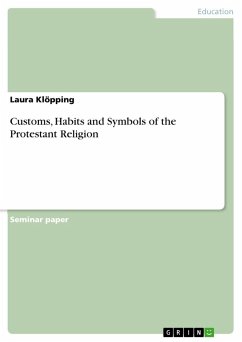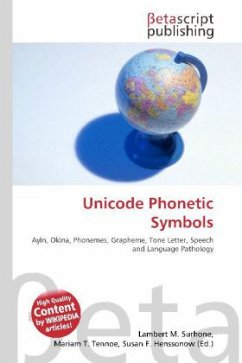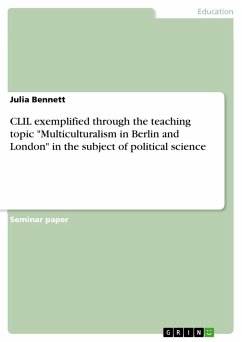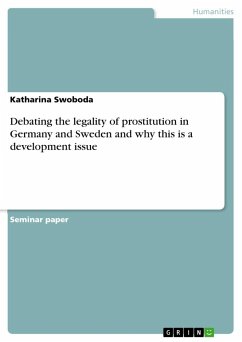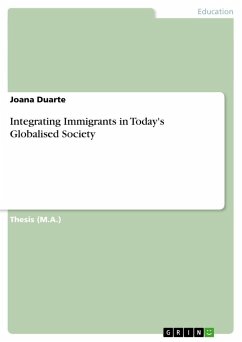Seminar paper from the year 2012 in the subject Pedagogy - Intercultural Pedagogy, grade: 1,0, Stralsund University of Applied Sciences, language: English, abstract: The word religion has its roots in the Latin words religio or religari, which stand for retrospective dependence and to aim at something very often. But nowadays the term religion is quite hard to grasp, as it is somehow always there but always in a different way, which is hard to explain. All in all it stands for the involvement with fundamentional questions of mankind, like "Who am I?", "Why do I live?", "What should I do?" or "How can my life succeed?".Christianity is the biggest religious movement in the world with more than 2.1 billion supporters, which is almost one third of the world s population. Christians live all over the world, but most of them in the southern hemisphere. Faith and above all, everyday life is different everywhere, dependent on denomination, but on the face of it, the common origin is obvious.The word Protestantism was originally not a self-designation of the evangelic Christianity, it came into being by the letter of protestation by Lutheran princes against the decision of the Diet of Speyer in 1529, which banned Martin Luther s 95 theses. The word itself has two main options of being understood: it could stand for entering an objection, coming from the Latin word protestari or for bearing witness, coming from pro testare. And so both of those meanings became main indicators for Protestantism. In England the term stood for all non-Catholic churches and was already often used during the 16th century, while in Germany it only won through after 1700. To say evangelic seemed to be more logical here as Martin Luther was concerned with the gospels (German: Evangelien). Today Protestantism is besides Catholicism and Orthodoxy one of the three basic forms of Christianity.This paper aims to describe and analyze typical customs, habits and symbols of the protestant religionas well as to give a short overview about what those are based on and where they come from.
Hinweis: Dieser Artikel kann nur an eine deutsche Lieferadresse ausgeliefert werden.
Hinweis: Dieser Artikel kann nur an eine deutsche Lieferadresse ausgeliefert werden.

